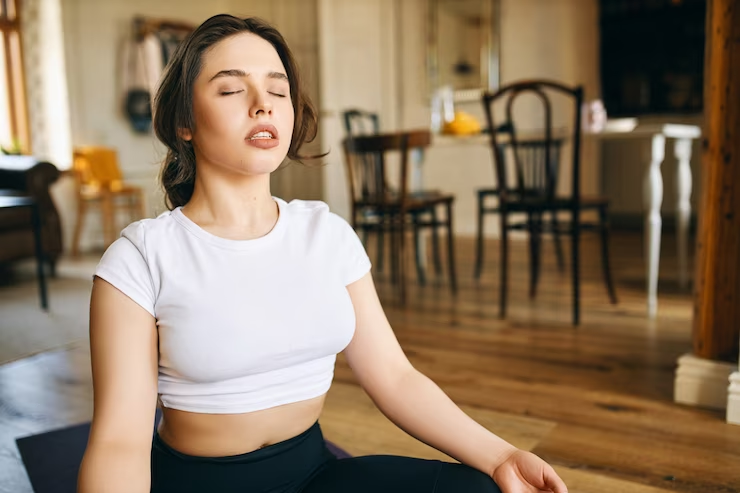Sleep is a fundamental aspect of our overall well-being, and getting quality rest is crucial for optimal health. In South Africa, where sleep disorders and difficulties are prevalent, it is essential to explore effective techniques to improve sleep quality. One such technique that can have a significant impact is practicing breathing exercises. In this article, we will discuss the role of breathing exercises in promoting better sleep for individuals in South Africa and provide some simple techniques to incorporate into your bedtime routine.
- Stress Reduction: Breathing exercises are known to help reduce stress and promote relaxation, making them an effective tool for addressing sleep-related issues caused by anxiety and tension. South Africa, like many other countries, faces numerous stressors in daily life. From work-related pressures to personal challenges, stress can have a detrimental impact on sleep. By practicing breathing exercises, individuals can activate the body’s relaxation response, leading to a decrease in stress hormones and a sense of calm, making it easier to fall asleep and maintain a restful state throughout the night.
- Calming the Mind: A racing mind can often be a barrier to falling asleep. Thoughts and worries can keep us awake, preventing us from achieving a peaceful state of rest. Breathing exercises serve as a mindfulness technique, redirecting our focus to the present moment and helping calm a busy mind. By consciously regulating the breath, individuals can shift their attention away from intrusive thoughts and create a mental space conducive to sleep.
- Improved Oxygenation: Deep breathing exercises enhance oxygenation and improve the efficiency of the respiratory system. By taking slow, deep breaths, individuals can increase oxygen intake, leading to improved blood circulation and overall relaxation. This oxygenation process can have a positive impact on sleep quality, as well-oxygenated tissues and organs promote better functioning and rejuvenation during sleep.
- Regulation of the Autonomic Nervous System: Breathing exercises can help regulate the autonomic nervous system, which plays a vital role in controlling bodily functions, including sleep-wake cycles. Slow and controlled breathing activates the parasympathetic nervous system, also known as the “rest and digest” system, promoting relaxation and facilitating the transition into sleep. By consciously engaging in deep breathing exercises, individuals can stimulate the relaxation response and encourage the body to enter a state of restfulness.
Simple Breathing Exercises for Better Sleep:
- Diaphragmatic Breathing:
- Lie down or sit comfortably with your eyes closed.
- Place one hand on your abdomen and the other on your chest.
- Inhale deeply through your nose, allowing your abdomen to rise as you fill your lungs with air.
- Exhale slowly through your mouth, feeling your abdomen lower as you release the breath.
- Repeat for several minutes, focusing on the sensation of your breath and allowing any tension to melt away.
- 4-7-8 Technique:
- Find a comfortable sitting or lying position.
- Close your eyes and take a deep breath through your nose, counting to four.
- Hold your breath for a count of seven.
- Exhale slowly through your mouth, counting to eight.
- Repeat the cycle for several minutes, allowing your body to relax with each breath.
- Box Breathing:
- Sit or lie down in a comfortable position.
- Inhale slowly through your nose for a count of four.
- Hold your breath for a count of four.
- Exhale slowly through your mouth for a count of four.
- Hold your breath for a count of four.
- Repeat the sequence for several minutes, focusing on the steady rhythm of your breath.
Incorporating breathing exercises into your bedtime routine can have a positive impact on your sleep quality and overall well-being. Remember, consistency is key. Practice these techniques regularly to experience their full benefits. However, if you continue to experience significant sleep difficulties or have underlying medical conditions, it is advisable to consult with a healthcare professional for a comprehensive evaluation and personalized guidance.
In conclusion, breathing exercises offer a simple and effective way to improve sleep quality for individuals in South Africa. By reducing stress, calming the mind, improving oxygenation, and regulating the autonomic nervous system, these exercises can promote relaxation and create an environment conducive to restful sleep. So, take a deep breath, let go of the day’s worries, and embrace the power of breathing exercises for better sleep in South Africa.










